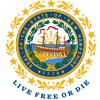FAQs
Healthcare providers play an important role in the New Hampshire Paid Family and Medical Leave (NH PFML) claim process.
-
2. Who is considered a healthcare provider for NH PFML?
Like FMLA, a healthcare provider for NH PFML can be a licensed practitioner working in a:
• Doctor’s office
• Hospital
• Health care center
• Clinic
• Post-secondary educational institution offering health care instruction
• Medical school
• Local health department or agency
• Nursing facility
• Retirement facility
• Nursing home
• Home health care setting
• Any facility that performs laboratory or medical testing
• Pharmacy or any similar institution
• Location or site where medical services are provided epilepsy may not be able to work due to an epileptic episode -
2. What is certification for NH PFML and why is it required?
Certification for NH PFML is evidence or proof of a qualifying event and in some instances the time needed to address the qualifying event period.
NH PFML benefits under the insurance plan can extend for long durations (6 weeks or 12 weeks) and therefore, prior to making a claim decision, MetLife will ask for proof to confirm the qualifying reason and the length of time a worker needs to be away from work.
-
3. What proof or documentation is needed to support a claim?
For one’s own serious health condition (when they are sick or hurt and cannot work for an extended period), MetLife may require the following forms for NH PFML:
- NH PFML Serious Health Condition certification form filled out by the claimant and their healthcare provider, which includes various information regarding a worker’s condition or
- A doctor’s note or Attending Physician Statement (APS) that includes the same information as the Certification of Serious Health Condition form
For child bonding for a newborn:
- A copy of the child’s Birth Certificate, or
- A statement from the child’s health care provider stating child’s date of birth, or
- A statement from the mother’s health care provider stating child’s date of birth
For child bonding for adoption or foster care placement:
- A copy of court documents finalizing the adoption, or
- Documentation from the child’s healthcare provider, or
- Foster/adoption agency paperwork confirming the placement and date of placement
- MetLife may also require a written notice of any change of status as an adoptive or foster parent while an application for benefits is pending or while a worker is receiving benefits
- Please note: If the claimant is not the parent named in the court documents, they may also be asked to provide proof verifying the relationship to the parent in locos named in the court documentation, such as, but not limited to, marriage certificate, civil union, or domestic partnership documentation
To care for a family member with a serious health condition, including medical events related to pregnancy or childbirth, the claimant must provide ONE of the following:
- NH PFML Serious Health Condition certification form filled out by the claimant and their healthcare provider, which includes various information regarding the worker’s family member’s medical condition, or
- A doctor’s note or Attending Physician Statement (APS) that includes the same information as the Certification of Serious Health Condition form
- Please note: In some cases, a statement confirming the relationship between the covered employee and the family member may also be requested
For caring for a family member who is a covered service member:
- NH PFML Serious Health Condition certification form filled out by the service member’s healthcare provider, which includes various information regarding the family member’s medical condition, or
- A doctor’s note or Attending Physician Statement (APS) that includes the same information as the Certification of Serious Health Condition form
- An alternative form of certification can be Invitational Travel Order (ITO) or Invitational Travel Authorization (ITA) issued by the Department of Defense to any family member to join an injured or ill service member at his or her bedside
-
4. How is NH PFML different from FMLA?
The Federal Family and Medical Leave Act (FMLA) allows workers to take un-paid, job-protected time away from work to address their own or a family member’s serious health condition. When a worker takes leave under FMLA, their job is protected,
this means that when they return to work from leave, their employer is required to reinstate them to the same or an equivalent position including the same pay and work schedule they previously had.
When an employer or employee enrolls in NH PFML, and the employee is eligible for leave under both laws, the NH PFML claim will run concurrent to an FMLA claim and provide 6 or 12 weeks of wage replacement benefits to compliment the workers unpaid FMLA.
When NH PFML is fully implemented on January 1, 2023, there could still be situations where a worker qualifies for NH PFML wage replacement and does not qualify for leave under FMLA.
-
5. How is NH PFML different than Short-Term Disability (STD)?
NH PFML insurance provides eligible NH workers with 60% wage replacement (up to the Social Security wage cap) for up to six weeks per year for qualified life events. NH workers who are receiving insured STD, long term disability (LTD) or workers’ compensation (WC) benefits are not eligible to receive NH PFML wage replacement for the same days of absence covered under STD, LTD or WC.



